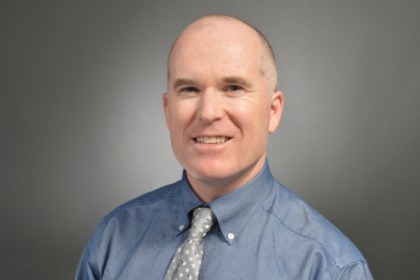(DECEMBER 18, 2023) Robert Gramling, M.D., D.Sc., professor of family medicine and chair of palliative medicine, commented to Time about a new study that reinforces the importance of framing death as a process rather than an outcome when caring for frightened patients and loved ones.

Robert Gramling, M.D., D.Sc., professor of family medicine and Holly and Bob Miller Chair in Palliative Medicine
(DECEMBER 18, 2023) Robert Gramling, M.D., D.Sc., professor of family medicine and Holly and Bob Miller Chair in Palliative Medicine, commented to Time about a new study that reinforces the importance of framing death as a process rather than an outcome when caring for frightened patients and loved ones.
Hospice professionals aren’t taught about care at a grammatical level in training, at least not explicitly, Gramling says, noting that research that describes and identifies the skills experts pick up over time can be valuable for expanding the general public’s ability to think and talk about death.
Gramling has studied end-of-life conversations, which he says require “thinking granularly about the words we use and how they land with other people.” When speaking to a family or a patient facing death, ask yourself: “Am I referring to this person as dying? Or am I referring to this person as living?” Gramling suggests. Such reflection grounds the conversation firmly in the present. Another question to consider about your wording: “Is that framed in the language of the person who's experiencing it, or is it really my perspective of things?” In hospice, where patients face only one outcome, speaking with empathy and compassion along the path to it is one thing within people’s control.
Read full story
at
Time